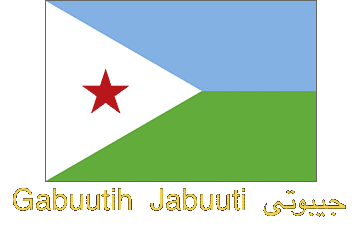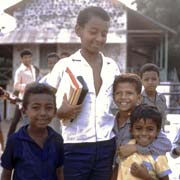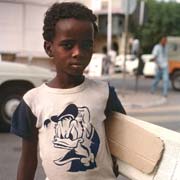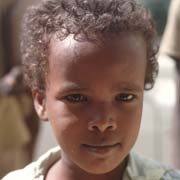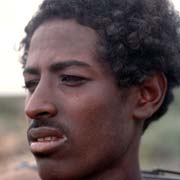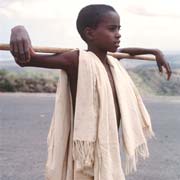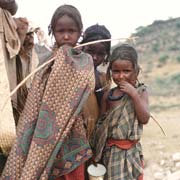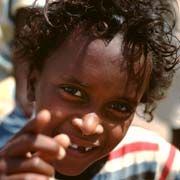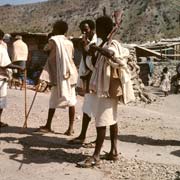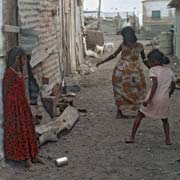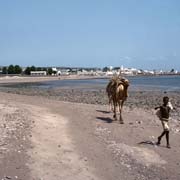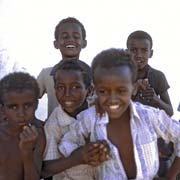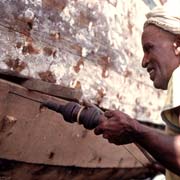Photos of The People of Djibouti, Djibouti
The People of Djibouti
Djibouti’s population is roughly divided into two groups: the Afars (formerly called Danakil) of the north and the Somali-speaking Issas of the south, both traditionally pastoral nomadic people, raising goats, sheep, and cattle in the desert. Because Yemen, on the Arabian peninsula, is only 20 kilometres away, there has been close contact for more than 1000 years. As a result, the Afar and Somali tribes in this region were among the first people on the African continent to accept Islam.
you may then send it as a postcard if you wish.
The Afar primarily live in the Afar Region of Ethiopia and northern Djibouti; their language, part of the Cushitic branch of the Afro-Asiatic family, is spoken by almost 100,000 people. Afar society was traditionally arranged into independent kingdoms, each ruled by its Sultan. The Afar are organised into clan families and two main classes: the asaimara (‘reds’), who are the dominant class politically, and the adoimara (‘whites’), who are working-class and found in the Mabla Mountains, a mountain range in the northern Obock Region of Djibouti. The Afar have an excellent reputation for their fighting ability and have a large repertoire of battle songs. Men traditionally wear a curved knife, the "jile", and these days will often carry a gun as well.
The Issa is a Somali clan, a sub-clan of the Dir. Apart from Djibouti, they also live in Somalia, the Somali Region of Ethiopia and the North Eastern Province in Kenya. Traditionally nomadic cattle breeders, they now also are traders and form the largest population group in Djibouti’s urban centres. Djibouti’s first President, Hassan Gouled Aptidon was an Issa and so is Ismaïl Omar Guelleh, President of Djibouti since 2012. Somali, an Afro-Asiatic language belonging to that family's Cushitic branch, is spoken by the majority of the population, with almost 300,000 speakers.
Djibouti also has an Arab trading community and a substantial French presence. Although Somali and Afar are widely spoken, French and Arabic are the official languages. The country's name, displayed underneath the flag on these pages, is in Afar, Somali and Arabic.


